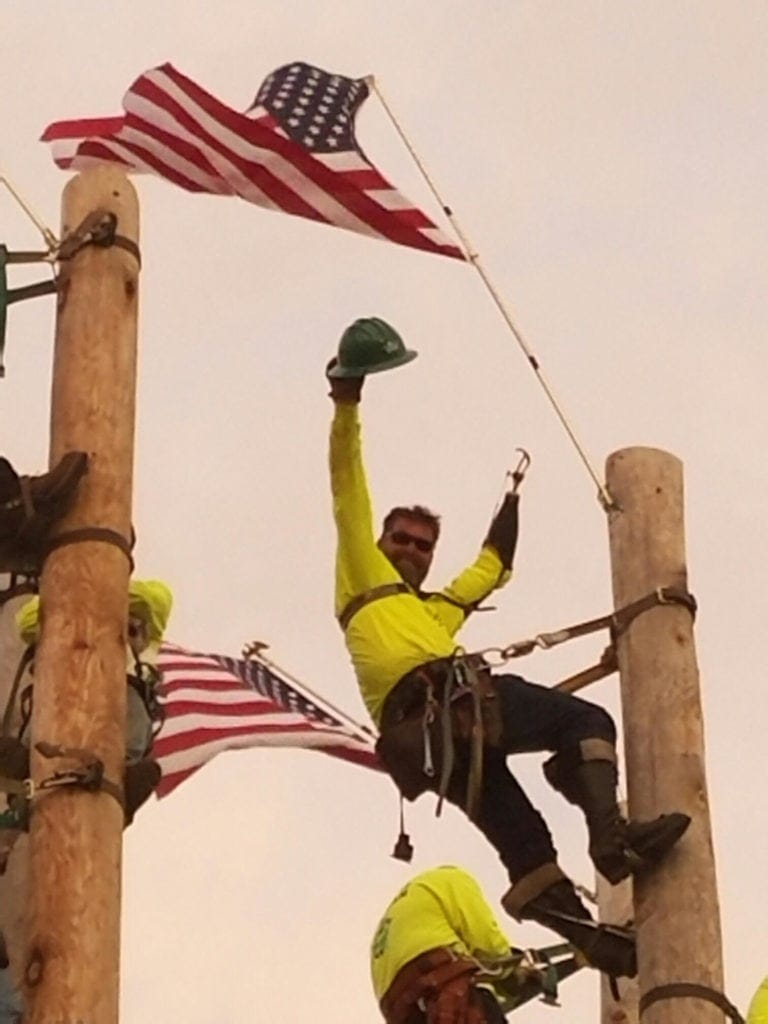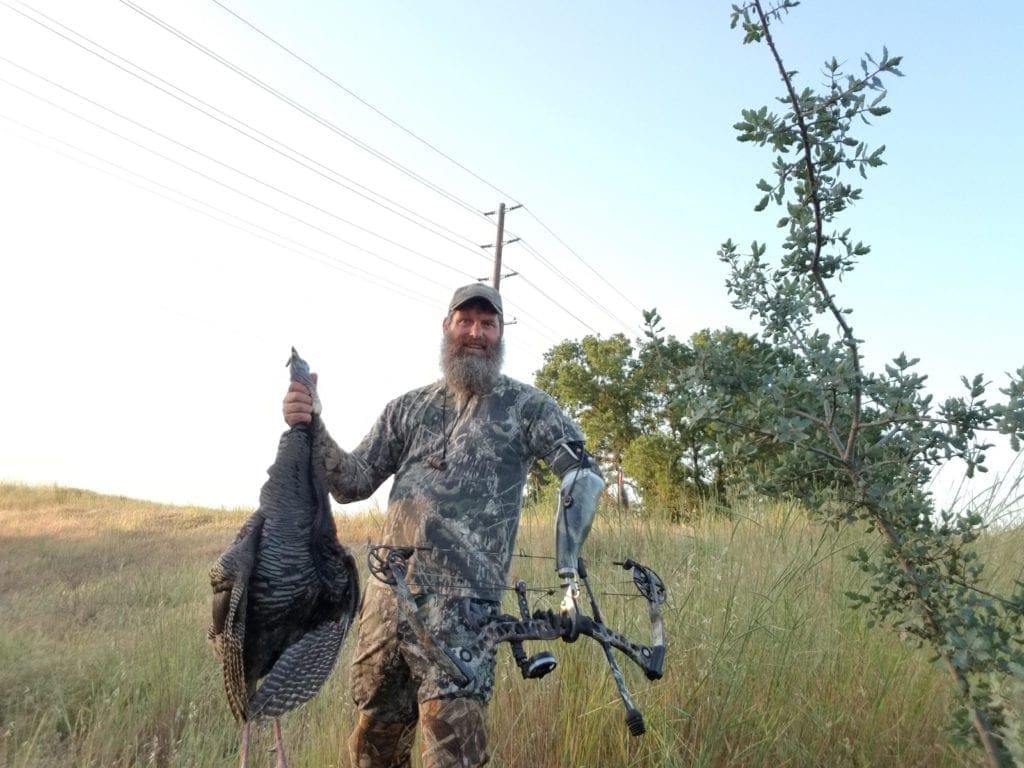By Kevin Juhasz
For Huskie Tools
Lineworkers are vital to the function of all areas of society. They are key to getting power and communications where we need. When there are failures in the system or disasters, they are called upon to help people survive and to restore normality.
Have no doubt, lineworkers are first responders and have a job that carries more danger than most in America. Just ask David Freeman, a 20-year line veteran from California who ended up losing a hand in a 2013 accident.

Freeman had been a lineman, a serviceman and crew lead before taking a job as a troubleman two years before his accident. Freeman went out with an engineer and an electrical technician to analyze a problem with a capacitor bank that wasn’t functioning properly. His investigation of the unit showed a broken connector between the source and the unit. Freeman ran tests on the unit that showed it was de-energized – but it wasn’t.
“It ended up being a fully energized line, so I took a 7,000-volt shock,” Freeman explained. “I ended up taking out a 65-amp primary fuse with my body and the concussion from me making contact knocked over the technician. A lot of energy went through me.”
Lineworkers have consistently been in the top 10 for the nation’s most dangerous jobs since the Bureau of Labor Statistics began keeping track in 2003. In 2017, the most recent year that information is available, there were a total of 26 fatalities, with a rate of 18.7 per 100,000 workers. In addition, lineworkers that experience injuries that require at least 1 day off from work have ranged from 5,550-6,500 per year since 2011. With electrocution, falls, environmental issues, there’s no shortage of danger that can be life-changing.
After Freeman’s accident, his heart stopped briefly. When he regained consciousness, he wasn’t very cooperative with the first responders. He even escaped from the ambulance once during transport, forcing the use of restraints for the remainder of his journey. This was all told to Freeman by those on the scene. He has no memory of events from the moment he made contact until he woke up in the burn unit at a University of California hospital.
Freeman made contact with the energized line with his left hand. Electrical burns are different from fire or chemical burns, because much of the damage occurs in the deeper tissues. This can lead to gangrene from the dead tissue.
“They tried a bunch of stuff to try and save my hand,” he said.
During his 30-day stay at the hospital, Freeman went through five major surgeries, including debridement that removed portions of the dead tissue, and flap surgery where the doctors planned to attach his arm to his abdomen in an attempt to replace the tissue he had lost. The surgery ran into complications before it began as both of the arteries in Freeman’s arm failed.
“One ruptured while I was in my room in the burn unit, and the other one ruptured when I was in the operating room,” he said. “They just didn’t have the blood flow that was needed to repair the tissue they had taken out.”
Freeman, like nearly 75 percent of people with electrical burns, would require an amputation. In his case, he lost his left hand. He has a very positive attitude toward his accident. He said after the surgery, it was a case of “getting on with the business of living.”

Freeman uses several types of prosthetics that have helped him return to normal living in the years since the accident. Freeman said his main prosthetic, a body-powered device, allows him to use it to hammer, pry and even put it in fire since he has no feeling. He joked that it’s useful for dealing with unfriendly dogs.
Freeman explained that he’s always been a mentally strong person, so it was never a question if he was going to get on with his life, only a case of figuring out how. This included new ways of figuring out how to perform daily tasks like brushing his teeth and shaving, along with some physical hand therapy to help.
“Being the stubborn individual that I am,” Freeman continued, “I fight my way through most situations I’m in. There’s very little I can’t do.”
Freeman was an outdoorsman before his accident and he’s been able to return to that lifestyle after. He also has a prosthetic that allows him to continue his passion of bow hunting. Freeman also credits his wife of 17 years, Sally, in helping him deal with his situation, saying he couldn’t have gotten through it without her.
“She’s an amazingly strong person just to get through all this,” Freeman said. “She’s my life partner. Not only did I lose a hand, but she lost a hand also.”
Freeman is now an inspector, and adds that he can do almost all of the things he did before the accident, including operating lineman tools and even climb polls.
There are also organizations that step in to assist those who are injured and their families. One such group is Fallen Lineman Organization, a non-profit that offers a wide variety of assistance to families of electrical lineworkers who are non-fatally or fatally injured on the job.
Founded in 2013, Fallen Linemen Organization can help fill the gap left by workman’s compensation limits, making sure that the families are secure. This is important because many of these households tend to be single-income families, explained Rebekah Boyd, assistant director of FLO.
Lineworkers can reach out to FLO, but the group also looks for people in need.
“We typically hear about (incidents) through social media, and have volunteers that reach out,” Boyd said. “We’re there as long as they need that assistance.
The volunteer network spans nationwide, and offers emotional support to families. FLO looks at the needs of families on a case-by-case basis and will help with household expenses, small medical bills, hotel rooms near hospitals, and more.
FLO also has a scholarship program and a traveling memorial that includes a statue commemorating those who have lost their lives. Part of the memorial includes a video that offers stories of fallen linemen and success stories of workers that were injured.
Lineworker Assistance Organizations
Fallen Linemen Organization
985.773.4601
National Sisterhood United for Journeymen Linemen
570.550.2978
Fallen Lineman Foundation
919-971-5818
